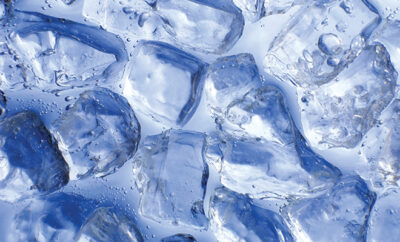
The Deets on D! Important Facts on Vitamin D
Well, hello, sunshine! There’s probably no better mood lifter and certainly nothing cheaper than a little vitamin D shining down from that big, beautiful light in the sky. Exposing our skin to natural sunlight, sans the sunscreen, a few minutes each day provides several health benefits and a brighter outlook.
Vitamin D does our body good by fighting heart disease and cancers while increasing bone density and brain function. That, combined with safe sun exposure and perhaps a brisk walk outdoors, decreases our chances of getting those pesky doldrums too, which is oh, so helpful for the upcoming winter months.
Sounds super easy, right? But it can be difficult to get your daily dose of D from foods, as few are naturally rich sources of the vitamin. Depending on the climate where you live, you may not be getting enough D from the sun. Knowing your own vitamin D needs is key, so let’s shed some light on the subject.
How Much D Do I Need?
Daily recommendations of vitamin D are based on international units, or IU, which are standard measurements for drugs and vitamins. The recommended IU for vitamin D vary with age.
It’s recommended that children and teens receive 600 IU daily and adults up to age 70, 600 IU. Pregnant or breastfeeding women are recommended to receive 600 IU. Adults over age 70 should receive 800 IU. Some experts suggest that older adults need even more.
Why D is Desirable
Vitamin D is mainly known for its role in helping calcium build strong bones. But the list of benefits is long. It helps prevent bone fractures and prevents falls and osteoporosis in older people. Vitamin D reduces the risk of cancer, especially breast, colon and prostate cancer, regulates insulin levels and aids in diabetes management. It supports lung function and cardiovascular health. Furthermore, it reduces risk for multiple sclerosis and improves mood.
Although it’s a little difficult to absorb through nutrition, some foods are great sources of vitamin D. Eggs, mackerel, tuna, catfish, cod liver oil, sardines and sockeye salmon are a few major food sources. Also known as the Sunshine Vitamin, vitamin D is produced when sunlight strikes the skin. People living in cloudy, cooler climates or those whose work and lifestyle keep them indoors should aim to get adequate amounts from foods or a supplement.
Tanning beds can even be beneficial for vitamin D production. According to the American Suntanning Association, sunbed users typically have significantly higher vitamin D levels compared to non-tanners. As with natural sunlight, making the vitamin D our bodies need from a tanning bed happens within minutes. Tanning the skin or using the tanning bed for a long period of time isn’t necessary. The Vitamin D Council recommends using the same common sense you use in a tanning bed as you do in regular sunlight. This includes getting half the amount of exposure that it takes for your skin to begin to burn and using low-pressure beds with more UVB light rather than high-intensity UVA light.
But don’t go overboard on the big D. Too much can cause muscle weakness and low energy. Aim to stay below 2,000 IU unless recommended by a doctor.
The Sexes and Vitamin D
As men age, vitamin D becomes even more important to their body, since it helps the body absorb calcium to strengthen muscles and bones. But a shortage of this valuable vitamin may increase the risk for prostate cancer. In studies, men who are vitamin D deficient doubled their chances of having a heart attack compared to men with normal levels.
Given the increase in life expectancy and the already high levels of osteoporosis and fractures among both sexes, a deficiency in vitamin D should be quickly addressed. Women are especially vulnerable because estrogen loss at menopause can cause a steep decline in bone density.
New Research: Vitamin D for Sun Protection?
According to a study published in the Journal of Investigative Dermatology, Vitamin D could help reduce the amount of sunburn and its symptoms. Researchers found that participants who took high doses of vitamin D within an hour of sunburn experienced a reduction in inflammation and swelling. Scientists explain the fast healing is because vitamin D increases an anti-inflammatory enzyme that causes other anti-inflammatory benefits and intensifies tissue repair. Scientists involved with the study noted that while the results suggest that vitamin D supplementation may be an effective treatment for sunburn, the doses used in their tests were much higher than current daily recommendations.
When it comes to the sunshine vitamin, balance is key, and the amount of vitamin D needed is not one-size-fits-all. Assessing your own needs with your doctor is essential to optimal health. Luckily for us, getting the right amount of the sunshine vitamin is simple, inexpensive and extremely protective against a wide range of health issues. ■
Sources: americansuntanning.org, webmd.com and healthline.com.







